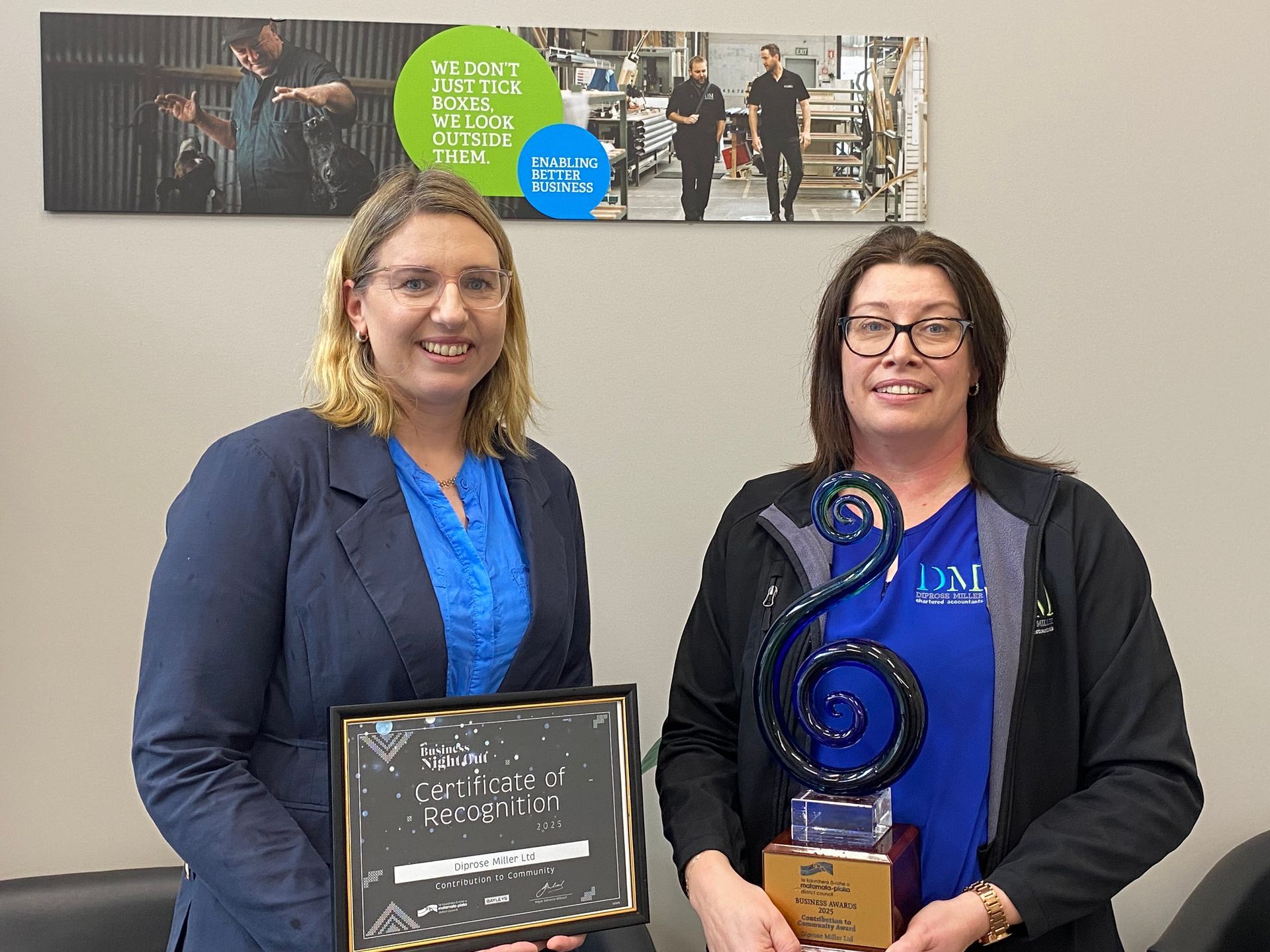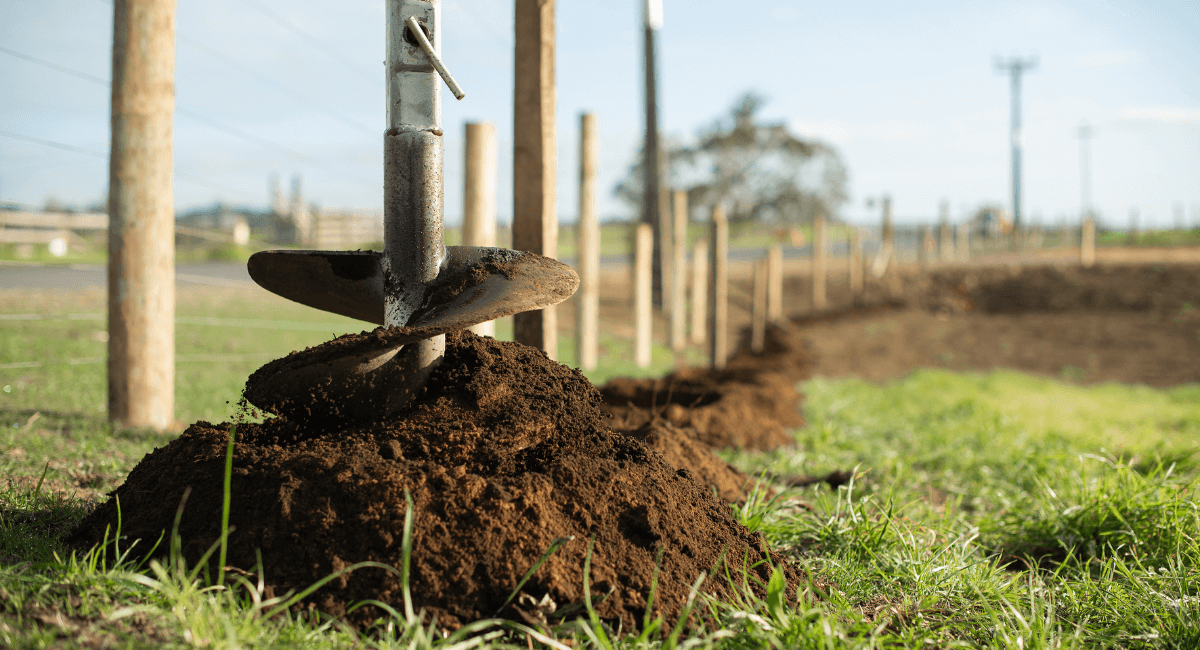News
We share useful content to help you in your role as business owner or operator.

15 January 2026
You don’t need to be an accountant to run a successful business but you do need to understand a few key numbers. Many business owners rely on their year‑end accounts to tell them how things are going. The challenge? By the time those numbers arrive, they’re looking backwards. And when you’re running a business, it’s what’s ahead that matters most. With clarity around these three numbers, you’ll be better equipped to make confident decisions - without drowning in spreadsheets. 1. Cash flow: What’s Actually in the Bank Cash flow is the movement of money in and out of your business. It answers a simple but critical question: Do I have enough cash to pay my bills, staff, and tax when they’re due? A business can be profitable on paper and still struggle if cash doesn’t arrive at the right time. Late‑paying customers, large one‑off expenses, or upcoming GST and provisional tax payments can all put pressure on your cash position. Understanding your cash flow helps you: avoid surprises plan ahead for quieter periods make decisions with confidence, not stress If you only focus on profit, cash flow issues can catch you off guard. If you focus on cash flow, you stay in control. 2. Working Capital: Your Financial Breathing Room Working capital is the cash your business has available to operate day to day. In simple terms, it’s the difference between what your business owns in the short term (cash, stock, and money owed to you) and what it owes in the short term (bills, wages, and tax). Healthy working capital gives you breathing room. It allows you to: pay suppliers on time handle unexpected costs keep the business running smoothly When working capital is tight, everything feels harder. Decisions become reactive, stress levels rise, and even small issues can feel overwhelming. Understanding your working capital shows whether your business has the flexibility it needs - not just to survive, but to grow. 3. Break‑Even Sales: Knowing Your Minimum Your break‑even point is the level of sales your business needs to cover all its costs without making a profit or a loss. It answers one essential question: How much do I need to sell just to stay afloat? Once you know this number, everything becomes clearer: you know what “good” looks like you can set realistic sales targets you can see the impact of changes in costs or pricing Without understanding your break‑even point, it’s easy to feel busy without knowing whether you’re actually getting ahead. Why These Numbers Matter These three numbers don’t exist in isolation, they work together. Cash flow keeps your business moving. Working capital gives you stability. Break‑even sales give you clarity. Together, they turn financial information into practical insight you can use every day. Simple Numbers, Smarter Decisions You don’t need complex reports or technical language to understand how your business is performing. You need clarity, context, and the right conversations. At Diprose Miller, we help business owners understand the numbers that really matter and what they mean for real‑world decisions. Because better business starts with better thinking. Ready to Get Clear on Your Numbers? If you want more confidence in your cash flow, working capital, or break‑even point, we’re here to help. A conversation with our advisory team can give you the clarity you need to make smarter, more strategic decisions. Let’s talk about what your numbers are really telling you and what to do next.

8 January 2026
For many business owners, the line between work and life can blur quickly. What begins as a business built for flexibility, freedom, or opportunity can slowly turn into long hours, constant pressure, and the feeling that the business is running you - not the other way around. If that sounds familiar, you’re not alone. When Success Doesn’t Feel Like Success From the outside, your business may look strong. Revenue is steady, bills are paid, and the doors stay open. But behind the scenes, it can feel like you’re always ‘on’, unable to step away, or unsure whether the effort is truly worth it. This is where financial clarity and honest reflection matter most. A business can be profitable on paper yet unsustainable for the person running it. True success isn’t just about survival, it’s about building a business that supports the life you want, not one that consumes it. Stepping Back to See the Bigger Picture One of the most powerful things a business owner can do is pause and step back. That means lifting your head above the day to day and asking questions that cut to the heart of how your business really operates: What do I want this business to give me - now and in the future? Am I spending my time on the right things? Does the business rely too heavily on me? Is it structured to grow, or to let me step back? These conversations are often the catalyst for meaningful change. Without them, it’s easy to stay busy without making progress. Time, Money and Clarity Go Hand in Hand Time pressure and financial pressure are closely connected. When cash flow is tight or visibility is low, business owners often compensate by working longer hours, delaying decisions, or avoiding time off. Clear financial information, including cash flow forecasting, realistic budgets, and regular reporting, can relieve that pressure and restore control. Clarity creates confidence. And confidence leads to decisions that protect both your business and your wellbeing. Goal‑Setting with Purpose Advisory isn’t just about improving numbers. It’s about aligning your business with your goals. For some, that means creating space to spend more time with family. For others, it’s preparing the business for growth, succession, or eventual sale. The right goals are personal, and they evolve over time. What matters is having a plan that connects your financial position with where you want to be, not just this year but in the years ahead. Thinking About the Long Term Many business owners delay conversations about succession or exit planning, assuming they’re ‘years away’. In reality, the earlier you start, the more options you create. A business that is well‑structured, less dependent on its owner, and financially transparent is not only easier to run, it’s also more valuable and more flexible. Even small steps taken now can make a significant difference later. Resetting the Relationship With Your Business At its best, your business should provide opportunity, stability, and balance, not constant stress. Often, improving that relationship doesn’t require working harder. It requires thinking differently, asking better questions, and having the right support around you. Ready to Build a Business That Works for You? At Diprose Miller, we help business owners gain clarity, set meaningful goals, and build businesses that support the life they want to lead. Our advisory approach goes beyond the numbers - it’s about creating a business that works for you, not the other way around. If you’re ready to reset your relationship with your business, let’s talk. A conversation today could be the first step toward a more balanced, sustainable future.

1 January 2026
Profit isn’t just a number on a spreadsheet. It’s the result of the conversations you have, the systems you build, and the decisions you make every day. For many business owners, profitability is judged by one measure: the bottom line. If revenue is steady and costs look manageable, things must be on track, right? Not necessarily! A Profit & Loss statement (P&L) is valuable, but it only shows what happened. It doesn’t explain why it happened, or whether your business is genuinely positioned for long‑term, sustainable success. True profitability is built on much more than margins alone. Planning: Profit Starts Before the Numbers The most profitable businesses don’t rely on guesswork, they plan ahead. In New Zealand’s business environment, where seasonality, rising costs, and cash flow pressure are common, clear budgets, forecasts, and scenario planning make a meaningful difference. Understanding when cash will come in, when it needs to go out, and how obligations like GST and provisional tax fit into the picture helps protect your profit from unexpected shocks. Good planning turns financial information into a forward‑looking tool. It gives you the confidence to make proactive decisions instead of reacting under pressure. People: Your Most Valuable Investment Your team is one of your biggest drivers of profitability, and one of your biggest costs. Hiring decisions, leadership capability, team structure, and staff retention all influence your bottom line, even if the impact isn’t immediately visible in the P&L. High turnover, unclear roles, or over‑reliance on the business owner can quietly drain time, energy, and profit. On the other hand, engaged people, clear accountability, and strong leadership create better productivity, stronger client relationships, and a more resilient business. These benefits don’t always show up neatly in the numbers, but they absolutely shape them. Systems and Processes: Making Profit Sustainable Many businesses look profitable on paper but feel fragile in practice. Manual processes, outdated systems, and inefficient workflows create hidden costs that erode profit over time. They also contribute to burnout, especially for owner‑operators juggling multiple roles. Smart systems and clear processes make your business easier to run, easier to grow, and easier to step away from. Sustainable profitability comes from building a business that works well without relying on long hours or constant firefighting. Better Insight Leads to Better Decisions Ultimately, profitability is driven by the quality of your decisions. Understanding which products, services, or customers are truly profitable allows you to focus your time and resources where they have the greatest impact. Timely management reporting and meaningful conversations around the numbers help turn financial data into insight, and insight into action. With clarity, you can make confident decisions about hiring, pricing, investment, or scaling back when needed. That confidence is often what separates businesses that simply survive from those that thrive. Profitability Is a Mindset A healthy bottom line matters but it’s rarely achieved by numbers alone. Truly profitable businesses think beyond the P&L. They plan ahead, invest in their people, strengthen their systems, and use financial insight to guide smarter decisions. They understand not just what the numbers are saying, but why. Ready to Build a More Profitable Business? At Diprose Miller, we help business owners look beyond compliance and understand what’s really driving their performance. Whether you want clearer reporting, better planning, or support to strengthen your systems and team, we’re here to help you build a business that’s profitable, resilient, and future‑ready. If you’re ready to take the next step, let’s talk. A conversation today could be the start of a more profitable tomorrow.

10 October 2025
Building a property portfolio is about more than just acquiring properties - it’s about managing the financial details that keep growth sustainable. From tracking cash flow to structuring ownership, the right accounting approach helps investors scale with confidence. Here are practical tips to strengthen your portfolio while maintaining financial stability. 1. Accurate Record Keeping Maintaining accurate and detailed financial records is crucial for managing a growing property portfolio. This includes: Income Tracking: Document rental income for each property separately. Expense Records: Keep a record of all expenses, including maintenance, repair costs, property management fees, rates and insurance. Mortgage Documentation: Track loan balances, interest rates, and payment schedules. Using accounting software tailored for property management can streamline this process and help you generate useful financial reports. 2. Understand Tax Implications As your portfolio grows, so will the complexity of your tax responsibilities. Ensure you are familiar with: Deductible Expenses: Understand which expenses are tax-deductible to maximize your tax benefits. Common examples include mortgage interest, property taxes, and operational costs. Bright-Line Rules: Be aware of potential bright-line tax liabilities when selling property and explore tax strategies to mitigate these costs. Consulting with a tax professional or accountant who specializes in real estate can provide valuable guidance. 3. Use Strategic Financing Leverage strategic financing options to expand your property portfolio effectively: Refinancing: Consider refinancing your existing properties to take advantage of lower interest rates or to extract equity for new investments. Portfolio Loans: Utilize portfolio loans that enable you to finance several properties under one consolidated loan, simplifying management and potentially offering better terms. Proper financial analysis will ensure that any borrowed capital is sustainable and beneficial in the long term. 4. Perform Regular Financial Analysis Regularly assess the financial performance of your property investments to make informed decisions: Cash Flow Analysis: Continually monitor cash flow to ensure your properties are generating surplus cash that can fund new purchases or improvements. Profitability Metrics: Calculate metrics such as ROI (Return on Investment) and cap rates (Capitalization Rate) to evaluate the performance of individual properties. Leveraging these analyses will help you identify underperforming assets and make strategic decisions on acquisitions or disposals. 5. Plan for Contingencies Have a financial contingency plan in place to shield your portfolio from unexpected events, such as market downturns or natural disasters. This might include: Emergency Funds: Maintain a reserve of liquid assets to cover unexpected expenses or periods of reduced income. Insurance Coverage: Ensure adequate insurance coverage for each property to mitigate risks from damage or liability. 6. Engage Professional Services As your property portfolio expands, the complexities of managing it can increase significantly. Consider engaging professionals such as: Accountants: They can manage the intricacies of financial records, compliance, and tax planning. Property Managers: They can handle daily operations, tenant management, and maintenance, allowing you to focus on strategic growth. Growing a property portfolio requires careful financial planning and management. By keeping accurate records, understanding tax implications, strategically using financing, regularly analysing financial performance, and planning for contingencies, you can efficiently expand your real estate investments. Engaging professional services, including accounting support, will provide peace of mind and contribute to the long-term success of your portfolio. If you need expert accounting services tailored to property investment portfolios, feel free to reach out to us . Our team understands the nuances of real estate accounting and can provide personalized advice and solutions to support your investment objectives.

8 October 2025
Property development can deliver strong rewards, but navigating tax obligations is rarely straightforward. Overlooking key rules can erode profits or create unexpected liabilities. To help you stay compliant and protect your bottom line, here are five common tax traps developers encounter - and how to avoid them 1. Ignoring Goods and Services Tax (GST) Obligations Many property developers overlook their GST obligations, which can result in substantial penalties. Solution : Ensure you are registered for GST if your turnover exceeds the registration threshold. Keep detailed records of all sales and purchases to help accurately calculate your GST liabilities. 2. Incorrectly Claiming Deductions Expenses related to property development can often be incorrectly claimed as immediate deductions, leading to issues during tax assessments. Solution : Distinguish between capital and revenue expenses. Only claim deductions you're entitled to and ensure expenses like interest and holding costs, typically capitalized until the property is completed and sold, are not incorrectly expensed. 3. Overlooking Potential Bright-Line Implications Misunderstanding when and how the bright-line rule applies can lead to unexpected tax bills. Solution : Plan each development project with a clear understanding of the tax implications. Consult with your accountant to determine whether a property is being held as trading stock (where profits count as ordinary income) or as an investment (potentially subjecting it to the bright-line rule). 4. Mismanaging Property Titles and Ownership Structures The structure in which you hold property plays a crucial role in determining tax liabilities. Solution : Review your ownership structures - such as individuals, companies, or trusts-as each has different taxation implications. Strategic planning with a tax advisor can help optimize your tax outcomes and ensure compliance from the outset. 5. Failing to Comply with PAYE and Withholding Tax Requirements If you engage workers or sub-contractors, failing to meet PAYE and/or withholding tax obligations can lead to penalties. Solution : Implement a robust payroll system to ensure PAYE and withholding tax is managed correctly. Regularly review and update subcontractor agreements and ensure compliance with Inland Revenue requirements to avoid potential penalties. Final Thoughts Navigating the tax landscape in property development can be intricate and demanding, but with thorough planning and professional advice, these common tax traps can be avoided. Partnering with a knowledgeable accounting firm can provide you with the support and guidance necessary to manage your tax obligations effectively, ensuring the success and profitability of your property development projects. Our team is ready to help guide you through the tax complexities of development

1 October 2025
Diprose Miller is proud to have received the Contribution to Community Award at the 2025 Matamata-Piako District Council’s Business Night Out. This award recognises the positive impact our directors and staff are making within our local community - and in particular, the difference that our Diprose Miller Community Fund is making to a wide range of local groups. Why this award matters a lot to us Community has always been at the heart of Diprose Miller. For us, success isn’t just measured in numbers; it’s measured in the wellbeing of the people and groups around us. Being recognised for our contribution affirms the values we live by: supporting local organisations, helping people feel they belong, and celebrating the region we live in. About the Diprose Miller Community Fund The Diprose Miller Community Fund was established to provide practical support to not-for-profit organisations and individuals who are working hard to make our communities better places to live. The fund contributes towards specific project costs that might otherwise not be affordable - easing financial pressure so groups can focus on what matters most. The impact so far Since its launch, the fund has supported a wide range of initiatives, from local sports clubs to schools, theatre, art and music groups, programmes supporting vulnerable people and community projects within the farming sector. Whether it’s new uniforms for a sports team, resources for a service to the community, or helping a local group host an event, each contribution adds up to stronger connections and greater opportunities across our district. Looking ahead We’re honoured to be recognised with this award - but more importantly, we’re excited to continue investing in the wellbeing of our community. As our district grows and changes, we remain committed to supporting those who make a difference every day. Congratulations also to the many other winners and finalists celebrated on the night - together, we’re building a vibrant, connected, and resilient community.

11 September 2025
Fonterra’s recent announcement - $16 billion in cash returns and a 15% revenue boost - is great news for farmers. With strong returns flowing in, many are asking: what’s the smartest way to reinvest? Paying down debt has long been the default. But with stronger equity positions and healthier balance sheets, now’s the time to think bigger. Here are three areas where reinvestment can drive long-term growth and resilience. 1. Rethink land use If a change in land use could lift your profitability, it’s worth exploring. Whether it’s diversifying into horticulture, or leasing out underused land, banks are increasingly backing strategic shifts that build equity. The right move could reshape your farm’s future. 2. Invest in business essentials Reinvesting in business essentials helps protect your equity and maintain leverage with lenders and suppliers. This might mean upgrading infrastructure, ticking off your farm environment plan, or tackling deferred maintenance. These aren’t just compliance tasks, they’re the foundation of your long-term viability. 3. Streamline for efficiency Technology and infrastructure upgrades can reduce labour hours, cut power costs, and future-proof your operation. Think solar panels, cow collars, automatic drafting systems, or finally replacing that tractor that’s costing more than it’s worth. With investment incentives currently available, now’s a great time to act. The takeaway Strong returns give you options. Reinvesting in land use, business essentials, and efficiency can strengthen your balance sheet, boost productivity, and set your farm up for long-term success. At Diprose Miller, we help farmers make smart, strategic decisions that support growth and protect family prosperity. If you’re ready to put your returns to work, let’s talk.

4 September 2025
Sometimes you may pay your employees sums in addition to their normal wages, such as: allowances benefits holiday pay lump sum payments Some are tax free, but most are taxable. For some, the employer pays the associated tax. For others, the employer deducts PAYE on the employee's behalf. You may also provide various non-cash benefits to your employees as part of their total employment package. Even where the benefits are not in cash, they still have a value which is taxable. The tax treatment depends on what the payments are for and the circumstances that apply. A brief overview Allowances There are different kinds of allowances but if it's a straightforward reimbursement to the employee for out-of-pocket work-related expenses, the allowance isn't taxable. Mileage, meals, and tools (including telecommunication devices) are examples. If the amount of the allowance is more than the actual amount of the expense, then the difference is taxable. The employee will be subject to PAYE or you will pay FBT on the difference. What about travel? Where you pay a travel allowance to an employee, you need to determine whether you are liable for FBT (if you paid for the travel) or the employee is liable for PAYE (if you reimbursed the employee’s travel costs). For a travel allowance to be tax-free, the travel must be ‘on work’ rather than just ‘getting to work’. Different factors affect the tax treatment. Can I claim GST on benefits and allowances paid to employees? You may be able to claim GST on allowances paid to employees for work-related expenses, if you are registered for GST. Keep all relevant tax invoices. You can’t claim GST for items that aren’t employment related, so this generally rules out claims on benefits. Benefits Benefits include anything that benefits the employee. They're not wages as such, but they're part of the employee's total employment package. As they're a perk of the job for the employee, you, as the employer, will usually pay fringe benefit tax (FBT) or be subject to PAYE on the value of the benefit. Benefits fall into several categories: non-cash, cash, and so-called special benefits. Holiday pay The employee is liable for PAYE on pay for annual leave and statutory holidays. Lump sum payments Pretty much anything else is classified as lump sum payments. These include bonuses, cashed-in annual leave, payments for accepting restrictive covenants, exit inducement payments, gratuities, or back pay, redundancy payments, retiring allowances, and overtime. Employees are usually liable for PAYE on these payments. Note that: the PAYE rate will vary depending on the employee's total taxable income ACC earners' levy won't apply above the maximum liable income threshold redundancy payments and retiring allowances are not subject to ACC earners' levy It can be confusing working out the tax treatment of these payments for your business. Let us know if you would like to discuss how the rules apply to your business.

21 August 2025
Keeping on top of the financial management of your business can be hard work. It's possible to have a profitable business that is struggling to find the cash flow to pay expenses and fund growth. Likewise, you could have positive cash flow but are not turning a profit, particularly if you are re-investing profits back into the capital expenditure. Turning a profit is at the heart of running any successful business But without an even and predictable flow of cash into the company, you can't cover your overheads, you can't pay your employees, and you can't run your day-to-day operations – let alone think about expanding and growing the business. In the end, you need both. But if you’re going to be in control of your financial destiny, it’s important to get your head around the important process of cash flow management. Let’s look at some of the key things to understand about your finances: Profit is a by-product of a successful business – as the owner, you want to make profits, but profitability isn’t the only goal. A business can easily be profitable, but also be highly unstable in the longer term. What you want is stability and consistent revenues. Cash flow keeps your business alive – good revenues (income) serve to bring cash into the business. Without cash to cover your operating expenses, you have no means to keep the lights on in the business. So cash really is king! Know your cost base and overheads – the flip side of your cash flow position is your costs. In an ideal world, you want more cash inflows than cash outflows, so it’s important to know your expenses and costs and to manage them carefully. Be proactive about spend management and easing expenditure – if you can take action that reduces your spending, that is hugely positive for your cash flow position. Choose cheaper suppliers, negotiate better deals and bring that cost base down. Drive more revenue, through increased sales and marketing activity – if you can increase your revenues, you also boost your cash flow. So it’s important to be proactive about running targeted sales and marketing campaigns to increase your sales. Keep the cash flowing and the profits take care of themselves – if you achieve the ideal cash flow position, the company sits on solid financial foundations, the cash is there for investment and the business can grow. It’s that simple. Talk to us about improving your cash flow management Whether you’re new to running a business, or a seasoned owner who needs some financial support, we can give you the cash flow advice you need. We’ll review your finances, delve down into your cash flow, and come up with key ways for you to increase your cash income and reduce your cash expenses. It only takes a few small changes to achieve a far better cash flow position for your business – helping you maintain positive cash flow AND generate profits.

14 August 2025
Unemployment in New Zealand has been steadily rising over the past two years. The unemployment rate has risen from 3.4% in Q1 of 2023, to 5.1% in Q4 of 2024. The rate has remained static for Q1 of 2025, but this prolonged rate of unemployment may be having a detrimental impact on the future of your small business. Let’s look at the alignment between unemployment and your future growth. 1. Reduced consumer spending: With more people out of work, consumers have less disposable income to play with. This leads to customers tightening their belts and less consumer spending on non-essential goods and services. This can directly impact your sales and monthly revenue, forcing you into a corner where prices (and margins) might be decreased to encourage more sales. 2. Low morale and poor employee retention: While a larger talent pool might seem beneficial, high unemployment can sometimes create a sense of job insecurity among your existing employees. Unstable economic conditions can lead to decreased morale, higher stress levels, and a potential struggle to retain top talent, who may feel less secure in their current roles. 3. Difficulty securing loans and funding: Banks become more risk-averse when there’s evidence of high unemployment, poor economic conditions and unpredictable market conditions. The recent CPA Australia Asia-Pacific Small Business Survey found that only 26.4% of Kiwi businesses expect it to be easy to access finance. Reduced access to funding can lead to poor cash flow, slower growth and an increasing need to reduce costs. 4. Decline in overall business confidence: The combined impact of poor economic conditions and high unemployment is significant. This unpredictable and unstable outlook can have a major effect on business confidence. New Zealand's ANZ Business Outlook Index fell sharply to 36.6 in May 2025 from 49.3 in the previous month. This may deter your small business from investing, innovating or expanding – all factors that could hinder your own long-term growth and stability. If you need support getting your business through the tough times – we’re here to help. There are still ways to control your spending, drive growth and do your bit to provide employment.

7 August 2025
For centuries, accounting was all about reviewing historic information – but that only told you about the past, not what was going to happen in the future. If you’re only looking back at past periods and historic numbers, this limits the insights you can achieve for your business. With a backward-looking ideology, it becomes difficult to plan, run through different scenarios or understand the path of the business going forwards. Forecasting changes this. With the right data analysis and forecasting tools, you can project sales, cash, revenue and profits into the future – and get in control of your business. A forward-looking view of your business journey Forecasting switches the focus of your financial management. By moving to a forward-looking view of your business journey, you can see further down the road – and that helps to spot any opportunities and avoid common business pitfalls. Forecasting adds value by: Highlighting the data patterns – a forecasting tool takes your historic data and projects it forward in time. This helps you and your advisers spot patterns, trends, gaps and opportunities, revealing the true ‘story’ behind your business accounts. For example, forecasting may reveal a predicted seasonal slump in the next quarter, allowing you to plan ahead and proactively take action to minimise negative impacts. Giving you a future view of your business – instinctively, business owners will look back at prior periods to assess performance. There’s value to reviewing your historic actuals, of course, but using forecasting helps you to look forward, rather than just backwards. Forecasting is the satnav, showing you the road ahead, rather than the rear-view mirror showing you the road you’ve already travelled. Helping you scenario-plan – with a financial model of your key drivers, combined with accurate forecasting, you can quick answer your burning ‘What if…?’ questions. Forecasting lets you run different scenarios, with different drivers, to see how business decisions may pan out over time. If option B performs better than option A, that’s invaluable information when defining your next strategic move. Making informed, evidence-based decisions – having ‘the full picture’ of combined historic numbers, forecasts and longer-term projections aides your business decision-making. Forecasting gives you solid evidence on which to base your strategy and helps to red flag any threats that are looming on the horizon – giving you the best possible information to keep your executive team informed and on the ball. A more effective relationship with your accountant – forecasting also helps us to get a better insight into what makes your business tick. This helps to spot potential areas of performance improvement, and to give you the best possible strategic advice, all backed up by solid, empirical data and management information. If you want to get in better control of the destiny and results of your company, we’re here to talk. Forecasting helps you highlight your future threats and opportunities – and create a proactive strategy to improve the performance of your business. It’s not always an easy process, but almost always one worth undertaking.

31 July 2025
Understanding your finances is a vital part of running your business. But getting down into the nitty gritty of your business’ financial reports isn’t every entrepreneur’s top skill. If you are new to company accounting, or simply want to expand your knowledge, this guide explains the foundational reports. The profit and loss report and the balance sheet are both key reports when it comes to getting in control of your company’s financial health. What’s a profit and loss statement? Your profit and loss statement is commonly called your P&L, but is also referred to as your income statement or statement of earnings. It’s a full breakdown of your company’s revenue (money coming into the company as sales and other business income) and your expenditure (direct costs, overheads, expenses and other costs). As a business, you obviously want to turn a profit and make money from your venture. Careful observation of your P&L allows you to track your revenues and expenses over a set period of time. You can then look back over the period and see exactly where you’re making money, and where you’re losing money. The more you make, and the less you lose, the greater your profits will be at year-end – and your P&L is your barometer for measuring these metrics. The P&L statement is good for: Giving you a breakdown of all revenues and relevant costs and expenses Showing the profit and loss figures over a set period of time Summing up your profit and loss for the period to gauge if you’re profitable. What’s the balance sheet? The balance sheet gives you a snapshot of your company’s financial health at a given point in time, based on the following accounting equation: ‘Equity = Assets - Liabilities’ The balance sheet shows you the company’s: Assets (the things the company owns, including cash) Liabilities (the things the company owes other people) Equity (retained earnings plus the funds you originally invested as shareholders) Unlike the P&L – which shows you the revenues and expenditure over the course of a given historic period – the balance sheet is best seen as a ‘screenshot’ of your current finances. In a nutshell, it shows you what the company is worth on paper right now, based on the current numbers in your business accounts. So it’s a vital tool in your accounting toolbox. The balance sheet is helpful for: Assessing the current financial position of the company Providing evidence of your financial position to banks, lenders and investors Making decisions on company dividends and related distributions Giving potential buyers an idea of the company’s tangible net asset value, if you plan to sell up. Talk to us about expanding your accounting skills If you can’t quite tell your assets from your equity, we are here to help. Accounting can be complicated and it takes time to fully grasp all the different terms and processes. We’ll be happy to run you through your latest management or statutory accounts and explain exactly what each report means – and how it reflects your current performance as a business. Get in touch with us to find out more.

15 July 2025
If you operate your business as a company, and you make a vehicle available to an employee to use privately, you’ll be liable to pay fringe benefit tax (FBT). This applies on vehicles made available to: employees (and their associated persons), and shareholder-employees (business owners) This applies whether the vehicle is actually used for private purposes or not. FBT does not apply: to vehicles that come within the definition of being ‘work related vehicles’ that are not available for private use for certain emergency calls and some out of town travel for working owners in Look Through Companies (LTCs). Instead, such benefits are treated as a distribution of profit to the working owner to the extent of the private use for sole traders and partners in a partnership. Instead, they make income tax and GST adjustments for private use. Not all ‘business’ vehicles are ‘work-related vehicles’ for FBT purposes. And some companies have other options instead of paying FBT. In some cases, exemptions apply. When is FBT payable? FBT is normally payable quarterly but can be filed quarterly, annually or by income year. Filing frequency depends on the type of company you manage, the benefits you provide and how much tax you pay. It’s important for clients to get this right because the use of, and deductions claimed for, vehicles is a common feature of any Inland Revenue review of a company’s tax affairs. You need to understand how the rules apply to your specific business. If you’re unsure and need advice, we’re here to help.










